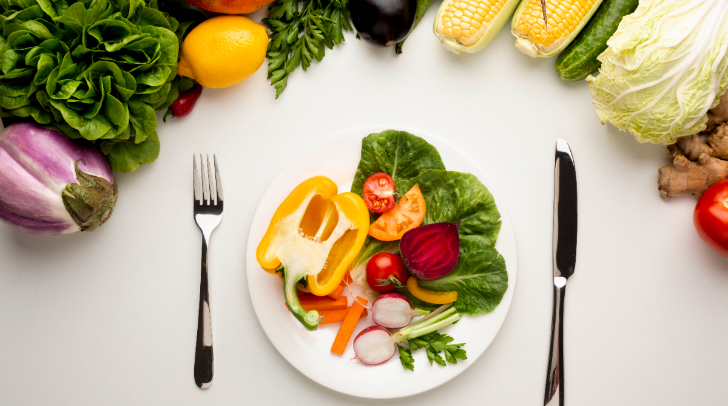Pizzas, burgers, shakes, cookies, chocolates, ice creams, and all things savoury, sweet, and delicious may be a delight for our taste buds, but they can take a toll on our skin health. While they’re perfect for a quick snack or celebrating special occasions, junk food doesn’t just contribute to weight gain, obesity, and diabetes, it also affects your skin, leading to dullness, acne, and other issues. Connector spoke with skincare experts to explore how junk food impacts your skin and what steps you can take to prevent these effects.
Junk Food And Skin Health Connection
Eating junk food occasionally won’t cause much harm, but if you make it a daily habit, consuming foods high in sugar, unhealthy fats, and processed ingredients will eventually affect your skin. Over time, this can lead to skin issues like acne and inflammation. High glycaemic foods, such as sugary snacks and processed carbs, can raise insulin levels, triggering excess sebum production, which clogs pores and causes acne.
Emphasising the impact of junk food on the skin, Dr. Umesh Nihalani, Specialist Dermatologist at Dubai London Clinic and Speciality Hospital says, "It's often said that your skin reflects your overall health. Junk food that is high in preservatives, artificial ingredients, and unhealthy fats can contribute to inflammation in the body, which may exacerbate inflammatory skin conditions like acne, eczema, and psoriasis. It's important to focus on a healthy diet rich in fruits, vegetables, whole grains, and lean proteins to support skin health. Additionally, junk food is typically high in salt, which can dehydrate your skin and increase the likelihood of wrinkles."
Junk food also impacts gut health, which in turn affects the skin and is linked to ageing. Natasha Rudatsenko, Founder of Health Nag, explains, "Skin health is often a visual representation of our gut health. Inflammatory junk food is dreadful for our gut health and creates issues such as leaky gut and food intolerances. This visually shows on our skin as acne, rashes, dry skin, hives, wrinkles and much more. Sugary foods specifically create advanced glycation end-products which deplete collagen levels and increase ageing."
How Sugar And Refined Carbohydrates Impact The Skin
Most junk foods share a common ingredient, sugar and refined carbohydrates. Any food high in these two components is dangerous to health.
Adding more to this, Dr. Umesh Nihalani from Dubai London Clinic and Speciality Hospital, says, "Sugar is a common ingredient found in many packaged foods, and it can have negative effects on both skin health and overall health. Excess sugar in the blood can lead to a process called glycation, which can damage proteins like collagen and elastin in the skin, leading to wrinkles and sagging skin. A diet high in sugar, known as a high-glycaemic-index diet, can also disrupt hormonal balance. This can lead to an increase in androgen hormone production, which in turn can contribute to conditions like acne. It's essential to be mindful of your sugar intake and opt for whole, nutrient-dense foods to support overall health and skin health."

Impact of Unhealthy Fats On Skin Elasticity And Appearance
"Most unhealthy fats in junk food often come with high levels of carbs and sugar, like in cookies or doughnuts. Consuming oxidised fats along with sugar leads to rapid weight gain, acne, and a decline in collagen production," adds, Natasha Rudatsenko from Health Nag.
Dr. Umesh Nihalani from Dubai London Clinic and Speciality Hospital explains how inflammation is connected to oxidative stress in the skin, stating that this process can significantly impact collagen levels. Dr. Umesh Nihalani elaborates, "Skin ageing is a complex biological process that can be classified into chronological ageing and photo-ageing, both influenced by internal and external factors. Maintaining youthful skin largely depends on preserving healthy collagen, a protein crucial for the skin's radiance, elasticity, and firmness. However, collagen can be damaged by sun exposure and inflammation. Over time, with cumulative exposure, collagen gradually breaks down. Inflammation further accelerates this breakdown. Consuming processed foods, which are highly inflammatory, increases oxidative stress on the skin, leading to premature collagen degradation."
How Can A Healthier Diet And Cutting Back On Junk Improve Skin Health?
Now that we understand how junk food impacts skin elasticity and how inflammatory foods contribute to collagen breakdown, accelerating the ageing process, let's explore ways to reverse the damage and improve skin health.
Natasha Rudatsenko from Health Nag recommends focusing on foods rich in vitamin C, such as fresh fruits and vegetables, to slow collagen loss, which decreases by about 1% annually after age 25. Additionally, a protein-rich diet can boost overall collagen production. For optimal skin health, combine a balanced diet high in protein and fibre with a high-quality collagen supplement.
Meanwhile, Dr. Umesh Nihalani from Dubai London Clinic and Speciality Hospital, says, "Cutting back on junk and oily foods reduces oxidative stress on your skin. Lowering your intake of excess salt and sugar can decrease dryness and inflammation. Less inflammation means less collagen breakdown, which slows the ageing process. Additionally, it supports the skin’s inflammatory response and strengthens its immunity, leading to fewer infections. Overall, these changes make the skin more resilient."

What To Incorporate In Your Diet To Fix Skin Damage from Junk Food
Say Yes To Cooking Meals
Natasha Rudatsenko from Health Nag advises starting by cutting out packaged foods from your diet. Instead, focus on eating homemade meals made from whole, clean ingredients. When cooking at home, choose healthy oils like extra virgin olive oil, coconut oil, avocado oil, and grass-fed ghee.
Balanced Diet Is The Key
Dr. Umesh Nihalani from Dubai London Clinic and Speciality Hospital, "To support healthy skin, aim for a balanced diet that includes a variety of vitamins, minerals, fats, proteins, and antioxidants. Incorporate a multi-coloured salad into your daily meals and use cold-pressed oils rich in good fats for cooking. Opt for whole foods over processed ones, and skip store-bought salad dressings, which are often high in unhealthy ingredients and sugars. Also, choose whole fruits instead of fruit juices to avoid excess processing."
Hydration Is Necessary
Drinking plenty of water helps flush out toxins, keeps your skin hydrated and glowing, and helps control dirt and oil. Aim to incorporate at least three litres of water into your daily routine.
Workout And Eat Whole Food
Enjoy junk food and sugar in moderation, and balance it with regular workouts to burn off excess sugar. You must also opt for whole foods over processed ones, and choose whole fruits instead of fruit juices to maximise nutritional benefits.
Add Antioxidants To Your Diet
Antioxidants protect your skin from damage and ageing by neutralising free radicals, which are unstable molecules that harm cells. They also help maintain healthy collagen production. You can get antioxidants from colourful fruits and vegetables like berries and citrus, nuts and seeds such as almonds, and spices like turmeric and ginger.